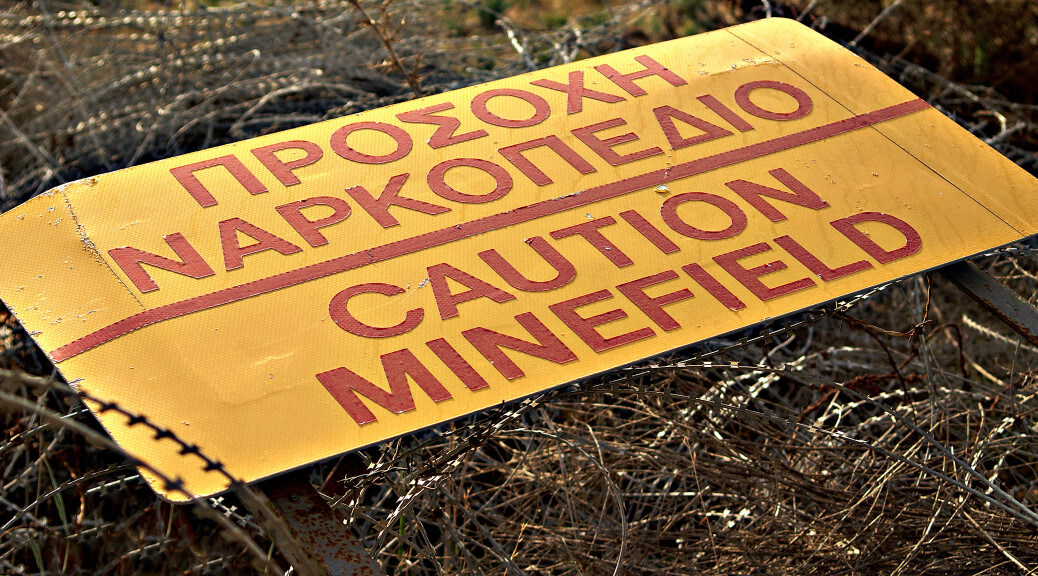
What sounds more difficult to you, figuring out supply and demand, or accurately measuring the Earth’s circumference? It must be supply and demand, because Eratosthenes figured out the other one two thousand years before anyone really managed any progress on that supply-and-demand stuff.
So now that we’ve established that supply and demand is much harder than accurately measuring the Earth’s circumference, we should ask ourselves why it is so. If you don’t know how Eratosthenes managed it, try thinking for a moment about how you might go about accurately measuring the Earth’s circumference with only the tools available in Ancient Egypt. Hint: you can compute the circumference of a sphere with the arc length and angle between two points.
Have you figured it out?
Eratosthenes heard that on the summer solstice, the sun shone to the bottom of a deep well in Syene, a town far to the south of Alexandria, implying that the Sun’s rays hit Syene vertically at noon of that day. He measured the shadow cast by a vertical pole in Alexandria at noon of the same day. This gave him the difference in angle between the Sun’s rays hitting Alexandria and the Sun’s rays hitting Syene. Knowing how far apart Alexandria and Syene were, he had everything he needed to calculate the Earth’s circumference. He estimated a circumference of 25,000 miles. The actual circumference is 24,902 miles.
This isn’t something your average high school student would come up with, but once you know the solution it’s easy to see how someone really putting his mind to it could figure it out. And indeed, pre-modern people from other cultures made similar calculations with similarly impressive results.
Asking the Right Questions
So why didn’t Eratosthenes or any of these other smart people figure out supply and demand some time on the weekend between measuring the Earth’s circumference and devising clever ways to find prime numbers? It’s not like they had to wait around for someone to invent a special microscope or something. As with Eratosthenes’ calculation of the Earth’s circumference, you can take a few basic observations and derive general and useful truths about markets and prices: People use means to achieve ends. Two people exchange when both expect to benefit from doing so. Individuals use subsequent units of the same good for progressively less urgent uses, so units diminish in value as more are acquired. Supply and demand follow surprisingly easily from these simple premises.
This doesn’t seem so hard that the Greeks couldn’t handle it, so that’s out as an explanation. And it’s not like it wouldn’t be useful information! Many peoples could have spared themselves unnecessary hardship by understanding basic economics. While the Earth’s circumference might have some use to seafarers, supply and demand is relevant to all aspects of life.
My preferred hypothesis is that people just failed to ask the right questions. The circumference of the Earth is a known unknown. Once you figure out that the Earth is (roughly) spherical, the next obvious question is, how big a sphere? But you could go to the market every day to buy and sell goods, and never ask yourself whether there was a deeper order to the movement of prices beyond the proximate causes you know well from your personal experience. What do you mean, why are fish $3? The fishmonger wrote $3 on the sign, so that’s what they cost. That greedy fishmonger!
The Tribal Mind
Humans are social creatures. We evolved in a tribal setting. Our brains are specialized to understanding the social environment to a degree that we aren’t even aware of. Take something as simple as noticing someone is sad. There might be a minute change in the position of the person’s facial muscles, a slight change in posture, a small adjustment in the tenor of her voice. But you don’t consciously notice these things and reason out the person’s sadness; your brain does all that in the background. And have you ever noticed how precise we are at knowing where someone’s eyes are looking? It’s like a superpower!
Our social intuitions seem to be hard-coded into our thinking, to the point where we apply them in situations where we know they don’t apply. Have you ever heard lightning and thought it sounded “angry?” And since we have this astounding, hard-coded apparatus for understanding the social world, nothing is more natural than to fall back on it in understanding economic phenomena. The problem is that our brains are hard-coded to understand a tribal setting of no more than a hundred people or so. In a hundred-person tribe, the trading that existed happened in extremely thin markets, with no more than a few buyers and sellers of any particular commodity. The people exchanging would know each other well, and the exchange would take place within the larger social structure of the tribe. Consequently, price would probably have more to do with one’s place in the status hierarchy of the tribe than with other considerations. If I catch a fish, I might trade it a low price to a high-status tribesman to gain favour.
Think about the hypothesis that implies. When a merchant sells at a low price, we think he is doing something nice for us to gain our favour. He makes us feel esteemed and we raise his status in return. When a merchant charges a high price, we see him as brashly acting beyond his social status. This is consistent with the common complaint against “greedy” merchants, I think. When there’s an oil shock, we attribute malice to gas station owners for circumstances beyond their control. Obviously, our ancient ancestors never faced an oil shock.
A big stumbling block for early science was to get past the tendency to anthropomorphize the natural world. Since economists study man, there’s no problem with attributing human qualities to our subjects. The problem is with using social connotations that apply within the tribe or small group, but don’t apply to a large, impersonal marketplace with millions of participants. In the marketplace, pricing decisions don’t reflect tribal status games but supply and demand. Price movements are not driven by greed, which is always present, but by changing conditions affecting the market. Many economic errors are driven by this sort of thinking.
As Paul Rubin put it in his study of “folk economics,”
Naïve people or those untrained in economics think of prices as allocating wealth but not as influencing allocation of resources or production of goods and services. In folk economics, the amount of a good traded—whether in aggregate or by each
individual—is fixed and independent of price. Moreover, each individual is concerned with the distribution of wealth and income (with particular but not exclusive attention to his/her own wealth), not with any efficiency gains from economic activity. (p. 157)
The Politicization of Positive Problems
The biggest modern stumbling block to economic understanding is that people learn about politics before they learn about economics. As Eliezer Yudkowsky put it on Less Wrong, politics is the mind-killer:
People go funny in the head when talking about politics. The evolutionary reasons for this are so obvious as to be worth belaboring: In the ancestral environment, politics was a matter of life and death. And sex, and wealth, and allies, and reputation… When, today, you get into an argument about whether “we” ought to raise the minimum wage, you’re executing adaptations for an ancestral environment where being on the wrong side of the argument could get you killed. Being on the right side of the argument could let you kill your hated rival!
…
Politics is an extension of war by other means. Arguments are soldiers. Once you know which side you’re on, you must support all arguments of that side, and attack all arguments that appear to favor the enemy side; otherwise it’s like stabbing your soldiers in the back—providing aid and comfort to the enemy. People who would be level-headed about evenhandedly weighing all sides of an issue in their professional life as scientists, can suddenly turn into slogan-chanting zombies when there’s a Blue or Green position on an issue.
I have experienced multiple instances of giving the standard, econ 101 answer to a question of fact, only to be told that I am spewing vile right-wing propaganda. As someone who is not right-wing commenting on a basic issue in a field I have a graduate degree in, this is alarming. Alarming, but not surprising.
Economics and politics are intertwined. Even value-free statements about economics have political implications. Ideally, people would live the first twenty years of their lives in a politics-free environment where they would learn economics as a value-free and apolitical science. Then they could form political beliefs informed by sound economics rather than forming economic beliefs based on the political inclinations they developed as uninformed teenagers. (Of course, this politics-free bubble would be prohibitively costly to build and maintain.)
A libertarian sociology PhD student (the only one I know to exist) said to me that when you go around a sociology department saying you like markets, people think you hate gay people. I laughed, but he was only partly joking.
What I think is happening here, and in my interactions on twitter and elsewhere, is that people hear you speak the language of the hated Red tribe and see you as an enemy. As soon as that happens, there’s little you can say to persuade them. I can’t find it now, but there was an obscure political scientist whose blog I stumbled across during the student walkout from Greg Mankiw’s microeconomics class. The post burned itself into my memory in a way that only something profoundly annoying can. The author entered his first microeconomics class and was horrified by what he found: that minimum wages caused unemployment, rent controls made housing more scarce, and high taxes caused people to work less. Horrified by this doctrinaire right-wing discipline, he dropped the class and never set foot in an economics classroom again.
The blog post went on to detail how he (allegedly) learned a whole lot of economics through independent reading. This person decided all his policy positions before age 18 and has spent the rest of his life learning how to defend them in ever-more elaborate ways, acquiring degrees along the way. If he ever becomes famous enough to deserve a biography, it should be called Confirmation Bias. I doubt he’s atypical.
Conclusion
Economics isn’t hard because it’s technically difficult. Many of the most valuable insights are easily logically derived from basic principles, and seem unremarkable and even obvious once explained. The hardest thing about economics is navigating the cognitive minefield in which it lives. One needs to overcome an array of cognitive biases to even grapple with the technical problems of economics. One misstep and *BOOM* you slip into error. To understand economics, you must detach your thinking from both your social intuitions and your political affiliations. Even for the best of us, that is a difficult task.
The post Economics and the Cognitive Minefield appeared first on The Economics Detective.

 I shared
I shared